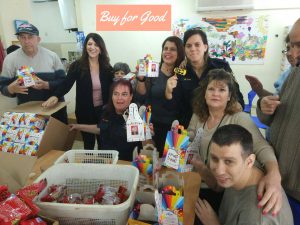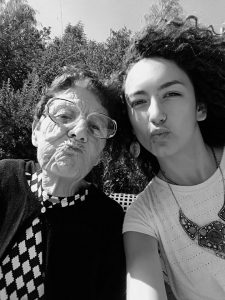Reduced Inequalities


Home » Reduced Inequalities » SDG 10 – Government Safety Net
SDG 10 – Government Safety Net
Internal tensions are running high in Israel, for obvious reasons. One area of criticism that continues to reverberate is the government’s perceived slow response to war damage caused both to individuals and the economy as a whole.
The facts speak for themselves: inside the country there are already more than half a million displaced Israelis – including the residents of senior citizen facilities, moved by the Social Services Ministry (which has also been evacuating people with disabilities and at-risk youth); numerous communities have become ghost towns; and Israel’s domestic product could take a $5 billion hit.
Despite failures to date, the clamor at least shows that the country remains true to its tradition of providing a safety net to the vulnerable.
Case in point: Israel’s National Insurance Institute (NII) – an anchor in social welfare activities – moved quickly to adapt to the situation with a series of timely moves, including transferring automatic payments of several thousand shekels to the injured in hospitals; that, concomitant with ongoing NII payments to other injured and their families. The NII is also conveying monthly stipends earlier than scheduled.


In other moves, the Finance Ministry has expanded to about 12 kilometers from the Gaza strip the designated area in which towns are entitled to automatic financial compensation for war-related damage. In addition, financial relief is being extended by Israeli banks and credit card companies – at the urging of the Bank of Israel – to first-degree relatives of those murdered and kidnapped by Hamas, mobilized reserve duty soldiers, as well as businesses and homes located near the Gaza strip. Furthermore, the Electricity Corporation announced it will not disconnect the electricity of customers in arrears.
That’s the “easy” stuff – from here it gets painful. Particularly taking into account the number of women victimized by Hamas, the Health Ministry released a directive concerning donations of breast milk – giving priority to babies of mothers killed, wounded, missing, abducted or serving in the army. In this context, Israel’s main emergency medical service, Magen David Adom, cautioned against using donated breast milk not supervised by the authorities.
It doesn’t end there. We’ll let this media report speak for itself:
“As the scale of the tragedy from the Hamas onslaught on Saturday became clear, with hundreds of young men — both soldiers and civilians — among those killed, embryologists and IVF specialists report being called to quickly try to perform posthumous sperm retrieval (PSR) on an unprecedented scale.”
There’s more: against the backdrop of extremely difficult eye-witness accounts of the Hamas massacre that have emerged in the media, the Social Services Ministry has beefed up the staff of sexual trauma experts in 100 centers that treat sexual assault victims.
On the bright side, to the extent there can be one in this tragedy: with students gradually returning to at least a semblance of study – for now, mostly on line – the Education Ministry is distributing around 5,000 laptops to displaced students. The Ministry has also dispatched teams to interact with those children currently residing in hotels and other accommodations.
We’ve said before that Israel is not perfect – and this has never been more apparent than at present. Nevertheless, we applaud the country for sticking to its social impact DNA in the worst of circumstances – an incredibly daunting task right now.
Related articles


SDG 10- Buy for Good – Economic Empowerment of People with Disabilities
Reduced Inequalities If the highest form of charity is to give someone their independence, then Buy for Good must be the most charitable organization out


SDG 10-Raising Solidarity in Corona Fight
Reduced Inequalities Social Impact Under Corona – Part Six Read: Part One, Part Two, Part Three, Part Four, Part Five This week Israel marked its 72nd year of


SDG 10- Volunteering as a Way of Life – Part 2
Reduced Inequalities Read Part 1 As we mentioned in an earlier post, the 2017 Civic Service Law created for the first time in Israel’s history


















